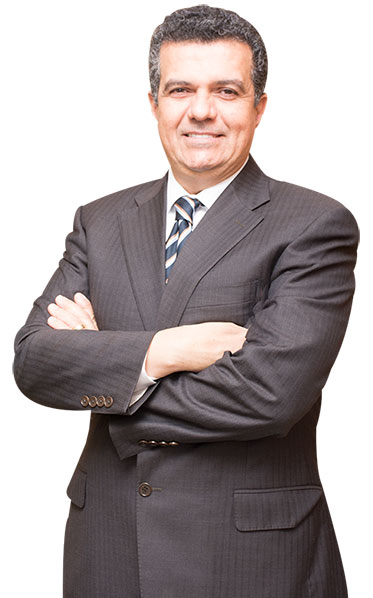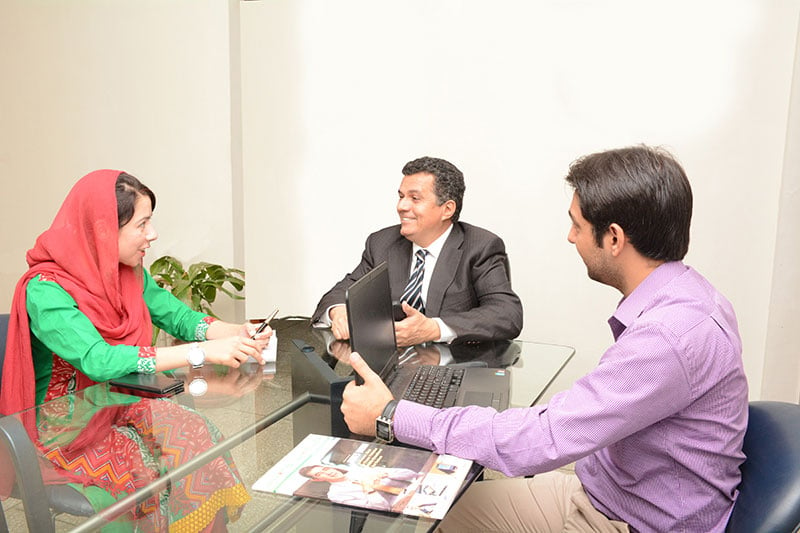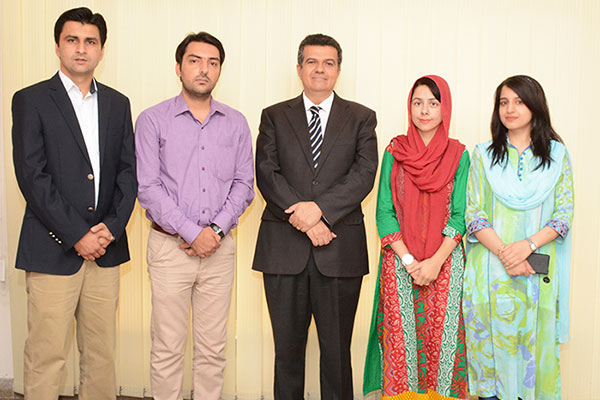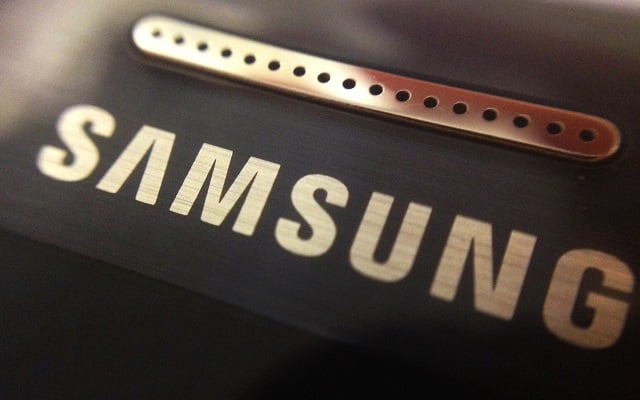Ricardo Tavares: CEO TechPolis Exclusive Interview with PhoneWorld
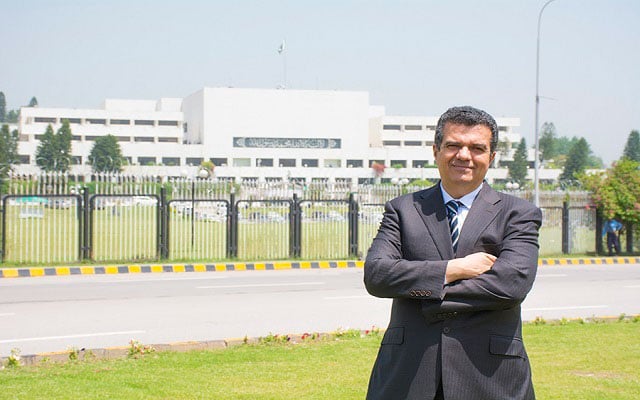
Ricardo Tavares is a leading international consultant on ICT policy and regulation. From 2004 to 2010 Ricardo was Sr. VP at the GSM Association, the international trade association for mobile operators. He was a Sr. Director of International Operations at San Diego, California-based Wireless Facilities, Inc. from 1999 to 2003, and was General Manager of WFI’s Brazil office in 2001/02, managing the roll out of 1,500 cell sites from radio planning to civil works to core network connectivity.
TechPolis provides international consulting services to leading players in the mobile technologies sector and helps them to navigate policy and regulatory challenges by guiding government relations, building industry alliances, designing advocacy campaigns, and providing crisis management. TechPolis’ experience is concentrated in five regions: Middle East & North Africa, South & Central Asia, Southeast Asia, and Latin America.
In an exclusive interview with PhoneWold team (PW), Ricardo Tavares (RT) shed light on his ten year journey in Pakistan and the ups and downs he saw in Pakistan’s ICT sector. Here is what he said.
PW: How did you start your work in Pakistan?
RT: In 2005 I was working as a Senior Vice President for Public Policy at the GSM Association. One morning I got a call from Tom Phillips, Chief Regulatory Officer, who asked me if I could go to Pakistan. The answer was yes so few weeks later I landed in Islamabad to meet the CEOs of the five operators and their heads of strategy, regulation, and communications. I still remember our first meeting at Mobilink’s office in Jinnah Avenue. It was a great experience that I still remember with fondness even 10 years later.
[pull_quote_left]Over the years I have developed numerous solid friendships in Pakistan[/pull_quote_left]
Over the years I have developed numerous solid friendships in Pakistan. I have also worked on various aspects of policy and regulation in the country from regulation of WLL, taxation policy, mobile termination, and rates of 3G/4G auction. As I tell my Pakistani friends, it has been a good ride, but the best has yet to come.
PW: How would you explain your experience of working in Pakistan and to what extend was it beneficial for you and your organization?
RT: When I first came, I was drawing on my experience acquired in Brazil with the regulation of WLL. That made addressing that issue in Pakistan easier because I had already dealt with, and successfully resolved a similar case in Brazil. Soon, however, I was using experience acquired in Pakistan to deal with problems in other countries.
[pull_quote_right]A better overall taxation policy would make taxation fairer in the country, allowing for phasing out telecom-specific taxes, thus increasing adoption and giving a big boost to the economy[/pull_quote_right]
My experience in Pakistan added new perspective to my work. One example of this is the question of how operators can remain profitable with ARPU lower than two dollars. There are very few places you find ARPUs as low as Pakistan but operators here have managed to pull out revenues at end, there are lessons for other low-ARPU countries. I also learned a lot about taxation. In societies where the middle class, landowners and the rich mostly do not pay any taxes, the mobile industry becomes a target because it is a very transparent industry—it reports to stock exchanges and investors care about companies being compliant with the rule of law. But the truth is, high taxes on mobile in Pakistan hold back the adoption of mobile services. A better overall taxation policy would make taxation fairer in the country, allowing for phasing out telecom-specific taxes, thus increasing adoption and giving a big boost to the economy.
PW: What is your vision for IT in Pakistan?
RT: The IT industry is very important in South Asia. Pakistan has number of excellent schools of engineering and a cluster of creative and well-trained engineers and technology business leaders in Islamabad, Lahore and Karachi.
The country also has a strong mobile sector. This provides a great platform for technology innovation. There are lot of companies here doing great stuff, many of them under the radar. Every time I visit, I meet with very interesting innovators. I am a firm believer in the capacity of the local IT industry to address real problems in Pakistani society, from the education of girls and rural kids to innovation in IP and digital security. It can also generate hard cash for the country on the IT outsourcing side.
PW: What potential do you see for local assembly and local manufacturing of Telecom Equipment especially mobile phones in Pakistan?
RT: I find it very difficult to see how a handset-manufacturing industry can be created in Pakistan without any of the basic elements of competitiveness. The electronics industry is the most global industry in the world. It goes where there are competitive conditions in terms of infrastructure, labor, and logistics. The reason this industry is not here yet is because Pakistan does not present these conditions. Can this change over time? Yes, it can. But it must start with power. The government is right to focus on power generation. Let’s do it for the 21st century, with smart grids for distribution, linking energy and telecom. Once power issue is addressed, mobile manufacturing industry can become competitive in Pakistan, and you can take it from there to address labor and logistics, which includes supply chains.
PW: What should we expect from the remaining spectrum auction and what benefits will it bring to the country?
RT: We just had the 3G and 4G auctions a little over a year ago. Operators and users are experimenting with high-speed mobile data, creating data traffic. I see the industry at the moment mostly satisfied with spectrum. Globally, we will see mobile operators adopting new technology solutions such as small cells and heterogeneous networks to improve spectrum usage.
[pull_quote_left]Telecom industry has seen a tremendous acceptance and generated enthusiasm in Pakistani society[/pull_quote_left]
Governments used to planning their budgets by counting on collecting a lot of money from the telecom industry may get a surprise. The level of debt/EBDTA of operators is generally getting above 2x. Financial markets do not like that and punish operators when this happens. Spectrum has become a major source of debt for operators as they have to borrow money to pay for it.
Now, there are alternatives emerging with Warid, for example, deploying small cells here in Pakistan. Market demand for spectrum is not there right now in Pakistan. But of course it all comes down to pricing. If data demand is strong, and spectrum pricing is more attractive than the cost of massive adoption of new methods of using spectrum efficiently, operators will opt for spectrum. However, let’s first look at the demand for data and incentivize it.
[pull_quote_right]Telecom is a great source for building positive image for Pakistan. For example, very few countries have won as many awards from GSMA as Pakistan[/pull_quote_right]
PW: According to you, what has changed in the Pakistan telecom scene in the past 10 years and what prospects it has for the future?
RT: I think the telecom industry has seen a tremendous acceptance and generated enthusiasm in Pakistani society. It also attracted a great deal of foreign capital to the country, which has remained committed instead of walking away at any sign of trouble. Successive governments have begun to better understand the industry. The future is really of increasing government-industry partnership to tap the incredible potential.
PW: As a technology consultant, what do you think we need to do to get more of that sort of traction globally? What do you think is missing?
RT: I will be totally frank, which is the only way to really help. Telecom is a great source of good for building positive image. For example, very few countries have won as many awards from the GSMA as Pakistan. In fact, only Brazil has won as many as Pakistan. This must be a coincidence but there are brand destroyers such as insurgency, terrorism and violation of human rights which are counter-productive. I would like to see the telecom industry and government working together to maximize the benefits of the positive telecom branding and positioning. It is vital to use the digital economy to bring social good and help to address the serious problems of the country.
PW: What are the challenges for the Pakistan in the coming years and how should our ICT leadership prepare for these challenges?
RT: My thinking is very simple. I come from a country, Brazil, with a population close to 200 million people. I see Pakistan also with a population close to 200 million today. In 20 years, Pakistan’s population will be bigger than Brazil’s. Demographics are a very important determinant of economics. Pakistan will stay here and its population will grow. Telecom is an essential service and a driver for economic growth. For the country as a whole, we also have to look at a major structural determinant: geography. Pakistan is part of several “regions”: South Asia, the broader Middle East, and Central Asia. It links China to the Gulf, Afghanistan to the ocean, and India to Central Asia.This is a profile for a trading country.
[pull_quote_left]Pakistan will stay here and its population will grow. Telecom is an essential service and a driver for economic growth[/pull_quote_left]
It requires visionary leadership to look 50 years ahead and say: let’s build a better relationship with all of our neighbors and build one of the greatest trading nations the world has ever seen – Dubai, Singapore or Hong Kong on steroids. Lots of things are difficult, but let’s start enhancing links with fiber optics—it is a great and safe way to do it. Data is the new currency, and you have to build a lot of capacity and links to benefit from this new data-driven world.
PW: How do you see Mobile Education in Pakistan as key to fill up the large gap we have in removing illiteracy?
RT: Pakistan should become the world champion of m-Education. Let’s put research & development into both technology and educational practices. There are resources for it in the Telecom R&D Fund. You must transform your weakness into your strength. Education is dismal in this country but the status quo can be disrupted. This is what technology is all about. Let’s fight the good fight for education side-by-side with teachers and technologists. Let’s involve government and mobile operators working together with teachers and IT innovators. There are great opportunities in our times, and m-Education in Pakistan is one of those.
[pull_quote_right]Our niche is really managing high-stakes policy and regulatory cases[/pull_quote_right]
PW: How much pressure does international competition put on you? Who do you consider your biggest competition?
RT: TechPolis is a small firm. We work with very big clients. Our niche is really managing high-stake policy and regulatory cases. We follow closely what the key players do in our field, but our value added is really knowing superbly well the issues and having the operational expertise and flexibility to work hands-on with firms and organizations to get them through crucial moments. We excel in that because we are nimble, flexible and focused. Our research-based approach combined with strong communications experience makes a huge difference.
[pull_quote_left]Data is the new currency, and you have to build a lot of capacity and links to benefit from this new data-driven world[/pull_quote_left]
PW: What will TechPolis look like in the future, say years from now?
RT: We are already doing a lot of work on the basics for the Internet of Things, 5G and hetnets. But the real question of the future is how mobile digital will help us to solve society’s problems in education, safety, citizenship.
PW: Anything you would like to say to our readers?
RT: I have gotten to know Pakistan very well. It’s one of the countries were I have a lot of personal and professional friends and truly enjoy visiting. I will never my role in making a difference in Pakistan.
Rapid Fire:
- Your first mobile phone? Nokia.
- Your most frequent caller? My wife.
- Who do you call the most? My wife.
- Which Pakistani Dish you like the most? It’s actually a sweet, Halwa, which I like in all flavors.
- Favorite Brazilian Dish that you eat? Rice and beans mixed is really the day-to-day food in Brazil, and it is the best Brazilian dish for me. You can add meat, fish, or eggs, and have it with a mixed salad (lettuce, tomatoes, and onions), but the base is really simple, delicious and healthy.
- Favorite Pakistani Restaurant? Monal, on top of the hills overlooking Islamabad.
- Is your smartphone a distraction for you? Yes, it is. Social networks are part of my day-to-day work but I must confess that sometimes I get carried away.
- Which application do you use the most? Google maps.
- Which handset are you using right now? Samsung Galaxy 5, but I miss the old Blackberry from RIM, which was kind of an extension of my body.
PTA Taxes Portal
Find PTA Taxes on All Phones on a Single Page using the PhoneWorld PTA Taxes Portal
Explore NowFollow us on Google News!